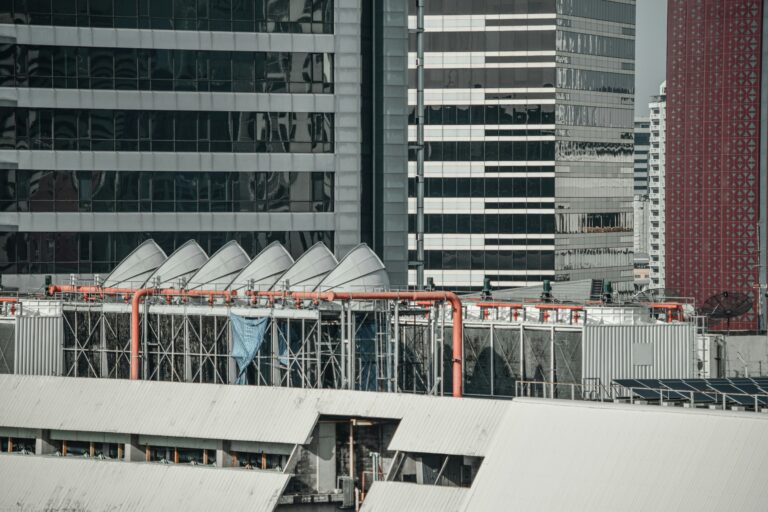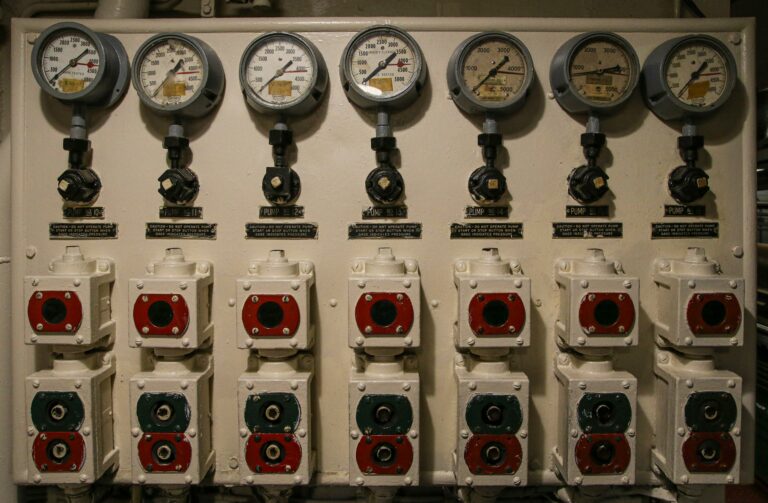List of HVAC Companies in the USA: Tips to Find the Best Fit for Your Project in 2025
The HVAC companies play a vital role in maintaining a healthy and comfortable indoor environment.
Read ArticleHVAC design is the planning and engineering of units that control the temperature, humidity, and airflow in a residential or commercial building. An HVAC designer or design engineer has expertise in planning the heating, ventilation, and air conditioning systems for all types of civil projects. A residential HVAC designer plans and lays out the comfort and functionality of a building by managing proper airflow, temperature regulation, and energy efficiency. If you are engaged in a residential construction project, choosing the right and most skilled residential HVAC designer is a task to be focused on.
Features of HVAC Design for Residential Constructions
A well-designed HVAC system for a residential complexencompasses appropriate sizing of the units to meet heating and cooling loads, efficient air filtration systems, proper ductwork for the distribution of air and to boost indoor air quality, ventilation to refresh air, and customized temperature control in different areas. To ensure a seamless and technically correct HVAC design for homes, the design engineer needs to focus on certain elements.
Heating and Cooling Systems:
The choice of the best heating systems, furnace boilers, and cooling systems through heat pumps and air conditioners needs to be planned flawlessly. These equipment are selected based on the climate of the area and the requirements of the residential project.
Ventilation:
The designer must focus fully on installing the proper ventilation system in the house. This will help to control humidity, remove stale air, and maintain adequate oxygen levels to ensure safe breathability.
Ductwork Design:
Efficiently designed ductwork to distribute conditioned air evenly throughout the building, minimizing air leaks and pressure imbalances.
Air Filtration
One of the most integral parts of HVAC design, which the engineers work on, is the smooth filtration of air. Most of the residential condominiums use best-quality air filters, which can trap dust, dirt, pollens, and allergens and augment indoor air quality.
Blower Fan:
Design engineers plan for a properly sized blower fan to circulate air through the ductwork throughout the building.
Thermostats
Energy efficiency is an essential feature of HVAC design, and engineers suggest fitting smart thermostats equipped with programmable settings. This makes energy-efficient temperature control easy and seamless.
Humidity Control:
Humidifiers or dehumidifiers are installed to make the HVAC design foolproof. This is to maintain the desired humidity levels as per the season.
Load Calculations:
The HVAC design engineers are experts in accurate calculations of heating and cooling loads. This helps to ensure the system is appropriate as per the size of the building.
Noise Reduction:
The engineers also ensure minimal noise is generated from all this equipment, which is fitted as a part of the HVAC design.
Energy Efficiency
No home HVAC design is complete without energy efficiency factors. The engineers specialize in choosing the right kind of equipment that is high in energy efficiency and optimizing system controls.
Choosing the Right HVAC Designer for Homes: Some Tips
Choosing the right HVAC designer for your home projects is a tough task. It is always safe to connect with an engineering and construction company that has a pool of talented engineers and specialists on board. Professionals who specialize in HVAC design generally come with mechanical or civil engineering degrees or diplomas. A few years of field experience is a bonus.
A basic understanding of mechanics, electricity, the tools they work with, and the blueprints and schematics they use ensures the seamless execution process in the job. The engineers must be good at communication as they often need to explain the various safety principles related to the HVAC system of a house. Let’s take a deep dive to know what the must-have skills of an HVAC engineer are.
Hiring a professional HVAC design engineer is beneficial all around.
• There is an assurance thatthe hired HVAC designer has the necessary knowledge, expertise, and experience to design an HVAC system for a particular project.
• Clients can be confident that the HVAC designer adheresto the best practices and standards of the industry and complies with the regulations.
• A lot of time and money is saved by minimizing or nullifying errors and delays that are never associated with professional engineers.
Technical Skills
It is needless to state that when choosing HVAC professionals for residential projects, in-depth technical knowledge is one of the most important skills. Sound knowledge and full clarity on the concepts of fluid mechanics, thermodynamics, and heat transfer principles are essential. Many renowned engineering and construction companies prefer HVAC engineers who are well-versed inCAD software functionalities.
Analytical Thinking Abilities
HVAC engineers should be endowed with analytical skills in sensing, understanding, evaluating, and risk measuring. They need to apply engineering techniques to design HVAC systems that are safe, cost-effective, and energy-efficient.
Flexibility
HVAC engineers, especially for residential projects, might come across unprecedented circumstances where they need to work in harsh conditions. As professionals, they need to be comfortable and adaptive to unfamiliar locations, unplanned situations, and emergencies.
Communication
Seamless communication about complex design by a residential HVAC designer gets half the job done. They should have supreme communication skills to discuss and engage various stakeholders. Complexities and details of the HVAC designs must be communicated effortlessly to construction engineers, architects, building owners, clients, or end-users by the HVAC specialists.
Keen to Learn and Adapt
As the HVAC space is constantly evolving and adapting to energy efficiency standards and innovative technologies, the design engineers must be adaptable to change.
Problem-solving Skills
Problem-solving and time management skills are a must-have for all HVAC professionals. Unfamiliar problems might pop up at any moment in any residential project. The design engineers must use their expertise and experience to locate the issue, fix it, or suggest feasible alternatives quickly.
Project Management
Though home HVAC design is a part of the residential construction project, the design engineers must have a strong hold on the entire project. They must be aware of the timeline, requirements, challenges, deployment, and execution plan.
Here are some essential and quick tips that will help you get the bestfit for your HVAC project.
Referrals and Recommendations
The best way to find trusted HVAC designers is through referrals and recommendations. Ask for referrals from family, friends, neighbors, and acquaintances who have worked with HVAC design engineers in the past. You can also search for HVAC designers in your area online. Go through Google reviews, social media posts, and ratings to find the best one for your home project.
Credentials and Certifications
Scan the certifications and credentials of different HVAC designers. It is also important to understand their skill level, knowledge level, reputation, and experience in past projects. For clarity, you can seek real-time feedback from clients on HVAC design for homes. Look for design engineers who have a portfolio that showcases their work quality and pattern. Preference is always given to those who offer an affordable quote for their services.
Easy on Communication
Along with checking the qualifications, credentials, past work, and portfolio, it is important to interact with the potential HVAC designers to get to know them better. Asking relevant questions on design and construction projects is one of the essential aspects of choosing HVAC professionals for residential projects. Along with regular questions, enquire about his capability to meet the timeline, face unforeseen challenges, and flexibility to adapt to new changes.
Once you have chosen the best HVAC design engineer for the home project, generate an all-inclusive, comprehensive, and transparent contract with all terms and conditions. This ensures a smooth execution. The professional must communicate the scope and requirements of the project along with the timeline to the engineer for a seamless execution experience.
Wrapping Thoughts
Choosing and finalizing a residential HVAC designer is a difficult yet extremely responsible task for a project. As HVAC is the main framework of every civil project, the design engineer who plans it must have adequate technical knowledge of airflow, ventilation, heating and cooling systems, ductwork, thermostats, temperature and humidity control, and energy-efficient systems. An HVAC design engineer is chosen based on his qualifications, years of experience, nature of past projects handled, and customer testimonials. You can directly interact with the engineers about their substantial background in HVAC systems in the industry.
If you are planning a residential project and looking for HVAC professionals, it is always advisable to connect with renowned companies that have a pool of talented and knowledgeable engineers. Among many such names, Rual Design LLC is one of the most popular brands. It is a USA-based MEP firm that specializes in HVAC design and execution. With 5 years of prolific work experience, Rual Design LLC has professional design engineers who have worked for HVAC systems for both commercial and residential projects. If you are planning to hire a professional, connect with this company for the ultimate HVAC design and execution.

The HVAC companies play a vital role in maintaining a healthy and comfortable indoor environment.
Read Article
The dynamism and revolution in HVAC design services USA have witnessed significant development, involving innovative technology and software applications.
Read Article